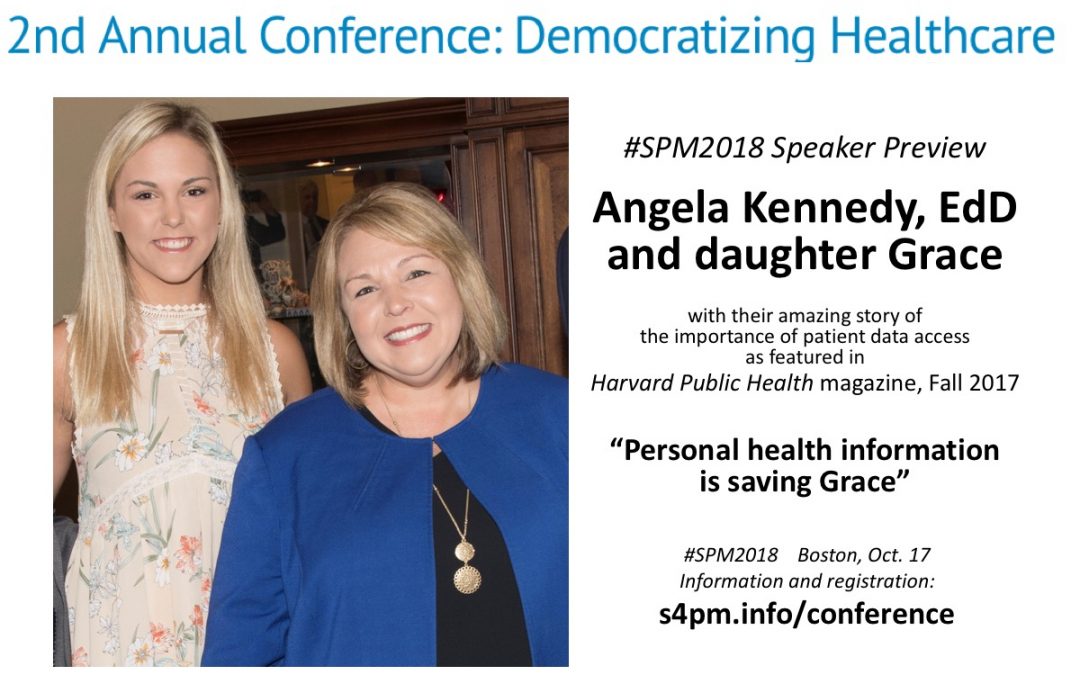Here’s the latest in our series of posts by and about the outstanding speakers we’ve lined up for the Society for Participatory Medicine’s second annual conference on Oct. 17 in Boston, attached to the prestigious Connected Health conference. Register here. (Our #SPM2018 series has more about the speakers and activities.)
Angela Kennedy, EdD, and her daughter Grace have been speaking on the topic of data access and use since Grace, now 16, was 11 years old. Grace, who is adopted, was mis-diagnosed with allergies but actually has cystic fibrosis.
Many of the medical records for Angela’s children (she has two adopted children) have been destroyed by both hospitals and clinics. As a result, she does not have a family medical history for them.
Due to a lack of and incorrect personal health information, Grace was being treated for conditions she did not have. When something didn’t add up, Grace was sent to a new specialist and was diagnosed with cystic fibrosis at the age of 11. The Kennedy family’s lives changed forever.
Grace is just one example of why the commitment to the consumer must be made so that we can provide health information where and when we need it, a guarantee that information will be available, accessible, accurate, and complete. “I experienced many frustrations in my attempt to gather my child’s medical records.” says Angela. “Due to an inaccurate entry in my daughter’s medical record, the inheritable condition was overlooked.”
Both Angela and Grace, who are presenting at the upcoming Society for Participatory Medicine conference in Boston, are avid proponents of participatory medicine. In 2015, Angela testified at a hearing of the Senate Committee on Health, Education, Labor and Pensions. The committee session was titled, “America’s Health IT Transformation: Translating the Promise of Electronic Health Records Into Better Care.” (Her testimony begins on page 28 of the transcript (PDF).)
To Angela, CEO of the Commission on Accreditation for Health Informatics and Information Management Education (CAHIIM), and her daughter Grace, participatory medicine means that the patient and the provider determine and coordinate care together. The patient actively participates in the care that they receive. Patients are not passive in the caregiving process but actively in charge. Per Grace, “The patient is in the driver’s seat and not a passenger along for the healthcare journey.”
At the SPM conference, Grace plans to discuss her intense experience including managing her own health records, clinical trial participation, how she leverages technology, and the many pitfalls of the healthcare system as she has experienced it.
Grace drives these points home: “Consumers need to be in charge of their care at every step in the wellness and care process. The use of patient generated healthcare data is important to both the consumer and the caregiver” she says, “the future of healthcare will be driven by the patient.”
Join Us for #SPM2018 in Boston October 17
Learn more about SPM’s second annual conference on Oct. 17 in Boston or register here today ($100 for members/$150 for non-members). In our early years it’s priced as a great bargain for a full day. And see this blog’s #SPM2018 series for more about the speakers and activities.







Recent Comments